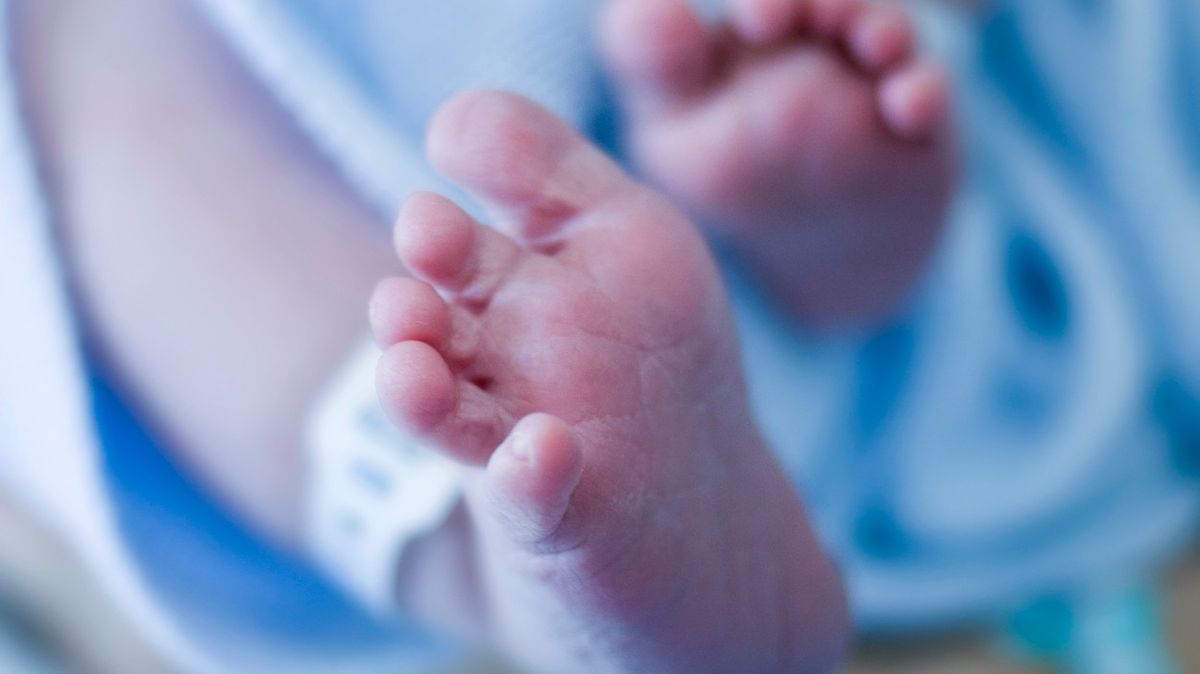Anxiety and depression related to pregnancy or motherhood is still a neglected area in the Czech Republic, which is not being addressed systematically by the state. This is by no means a rare problem.
According to the Mother’s Smile association, up to 13.6 percent of women experience psychological problems after giving birth. This is a total of 15,400 mothers per year. At the same time, only a minority received assistance.
“After giving birth, I was struck by a condition I never expected I would find myself in, let alone motherhood. I have a great background, a loving husband and the support of those around me. But something just happened and thoughts enveloped me. I was afraid that something small would happen or that I would do something to her,” Veronika Šišmová, mother of a four-year-old girl, has openly described her experience with postpartum depression.
She and other Mom’s Smile reps shared their personal stories at an event on Tuesday for Sunar brand’s Mommy Without Decorations initiative. The association is part of this initiative as a professional guarantor.
“That really is an unpleasant intrusive thought. I’m scared for myself. It got to a stage where I couldn’t sleep or eat and had to be admitted to a psychiatric ward,” he added.
Thanks to professional help, Veronika Šišmová got out of trouble and now helps women with similar problems.
The Úsměv mamy association is one of the pioneering projects in the Czech Republic in this regard – seeking to raise awareness about postpartum anxiety, organizing self-help support groups and working closely with the National Institute of Mental Health (NÚDZ). According to association data, mothers’ mental problems can take many forms.
Pregnancy and motherhood
Read on the web proženy. cz on topics related to pregnancy, motherhood and children.
“For example, the postpartum spleen is a common adaptation phase after delivery. However, adversity must pass, diminish, or at least replace with positive ones. But if the spleen persists for a long time and persistently, a woman cannot get rid of negative thoughts, it can be a warning sign that she is developing psychological problems,” says Renata Banášová, clinical psychologist and psychotherapist.
According to her, up to eight out of ten women experience at least some form of postpartum mucus. Up to three in ten women then experience anxiety with intrusive thoughts or sleep disturbances.
Less common is depression, which affects about one-tenth of women in some form. Most rarely, experts then encounter psychosis – that is, a serious condition in which a sick person is unable to behave according to reality, experiences delusions, mania or confusion. One to two women in a thousand experience it.
Helping hand
Lucie Kočová, vice president of the association, also has her own experience with anxiety after giving birth. He also fell into trouble which resulted in hospitalization.
“Right away on the maternity ward I felt like something was really off, and most importantly I stopped sleeping, which was a big trigger for the problem. I think that describes a lot of women and a lot of them are sensitive to sleep deprivation. It’s the thing that makes things it was very bad. I constantly felt that it was not me, I was exhausted and the anxiety became permanent seizures throughout the day,” explains Lucie Kočová today.
Photo: Smiling mother, Seznam Zpravy
According to the association mamy Úsměv, sharing experiences with so-called peer consultants, that is, mothers who have similar experiences, helps women.
“My brain was so tired I couldn’t read simple texts. That scared me so much and I was convinced that something fundamental was wrong with me. I was hospitalized, and for half of my stay I felt that I was also couldn’t come there, because her condition was very bad. But over time I succeeded, I took medicine, which I stopped. I was already feeling better when I left the hospital,” he added.
However, as data from the National Institute of Mental Health show, up to 75% of women with psychological problems do not seek professional help at all during maternity and maternity leave. There is some reasons.
Specialized care is still not available in many areas of the Czech Republic, or ambulances are reporting waiting times of several months. But part of the problem also arises from stigmatization – women are ashamed of the fact that they have psychological problems during what the public thinks is supposed to be one of the most beautiful in life. They see the situation as a personal failure and are reluctant to seek help.
That’s also why, according to psychiatrist Antonín Šebela of the NÚDZ Center for Perinatal Mental Health, the main option is step-by-step care, including peer consultation – that is sharing experiences with women who have had similar experiences, or who can advise and direct them to qualified professional care.
NÚDZ also implemented special examinations involving more than 6,000 women from eight maternity hospitals in the Czech Republic.
“According to preliminary evidence, women who had active support immediately after delivery were twice as likely to be non-depressed at the end of their six-month period,” says Antonín Šebela.

“Certified bacon geek. Evil social media fanatic. Music practitioner. Communicator.”







